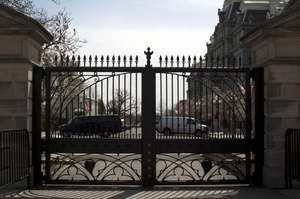Generally speaking, our laws don’t allow one party to be held liable for the wrongdoing of another. However, when it comes to premises liability – in particular, negligent security – there are numerous examples of property owners held liable for criminal acts committed on site. 
In negligent security claims, the crux of the argument is the criminal attack/injury would not have occurred but for a property owner/manager’s failure to secure the site or provide protection for plaintiff, as they had a responsibility to do.
This was the allegation in Sanders v. Erp Operating Ltd. P’ship, considered recently on appeal by the Florida Supreme Court. Although a trial court ruled in favor of plaintiffs, the 4th DCA reversed. The Florida Supreme Court reversed again, finding plaintiffs’ proof of causation sufficient.
According to court records, this negligent security case stemmed from the violent and tragic deaths of two apartment complex roommates. The complex was marketed as a gated community, and there were gates at the front entrance. Around 70 percent of the complex, there was surrounding water and fences or walls surrounded the remainder. The complex had a policy of providing locks, peepholes and reasonable lighting, and each apartment contained alarm systems that could be activated by residents.
In 2005, about a year after they moved in, the two roommates were shot inside their apartment by unknown assailants. There was no indication of forced entry, but several valuable items were stolen from the apartment.
Later, evidence was produced revealing that three years prior to the slayings, there were two criminal instances in which the gate had been broken and intruders followed residents onto the property. One incident was an armed robbery and another was an assault. The entrance gate was broken about two months prior to the killings.
Defendant was a national firm that owned approximately 100 properties. Policy manuals retained by the company indicated that when a significant crime occurs, notice should be given to other residents – especially if the crime was violent or involved forced entry. Yet no notices were sent regarding 20 criminal incidents that occurred on site three years prior to the killings, including seven burglaries, two robberies and 10 vehicle thefts.
Plaintiff, as personal representative of decedents’ estate, filed a complaint against the complex, alleging premises liability due to failure to maintain the front gate, failure to have adequate security, failure to prevent dangerous persons from gaining access to the site and failing to protect or warn residents of dangerous conditions and/or criminal acts.
An expert witness for plaintiff testified the crimes that occurred at the complex prior to the slayings were opportunistic, meaning assailants searched for – and found – easy targets. Further, he testified it appeared the killings had been committed in commission of another opportunistic felony (i.e., robbery).
Defense expert witness testified none of the crimes that occurred prior to this one were not violent or indicative of a foreseeable homicide. There had been no prior rapes, shootings or stabbings prior to this incident.
After all evidence was presented, defense moved for directed verdict, arguing plaintiff had not established proximate cause that defendant had control over the complex because there was no proof of how assailants gained access to the premises. Trial court denied this request, and jurors decided in favor of plaintiff, awarding $4.5 million in damage, to be apportioned to various survivors of decedents.
On appeal, the 4th DCA reversed, ruling the denial of directed verdict was improper.
However, on yet another appeal to the Florida Supreme Court, that ruling was reversed. The court noted a reasonable jury could have determined defendant’s failure to maintain the security gate and have a security officer visible at the entrance likely would allow assailants to get to decedent’s door more easily without being detected. Therefore,the lack of forced entry is not necessary to prove causation in this case, and the case was remanded for consideration in light of that ruling.
Call Fort Lauderdale Injury Attorney Richard Ansara at (954) 761-4011. Serving Broward, Miami-Dade and Palm Beach counties.
Additional Resources:
Sanders v. Erp Operating Ltd. P’ship, Feb. 12, 2015, Florida Supreme Court
More Blog Entries:
South Florida Judge: Punitive Damages Ok’d in Paralyzing Crash Case, Jan. 20, 2015, Fort Lauderdale Premises Liability Lawyer Blog
 Broward Injury Lawyer Blog
Broward Injury Lawyer Blog



